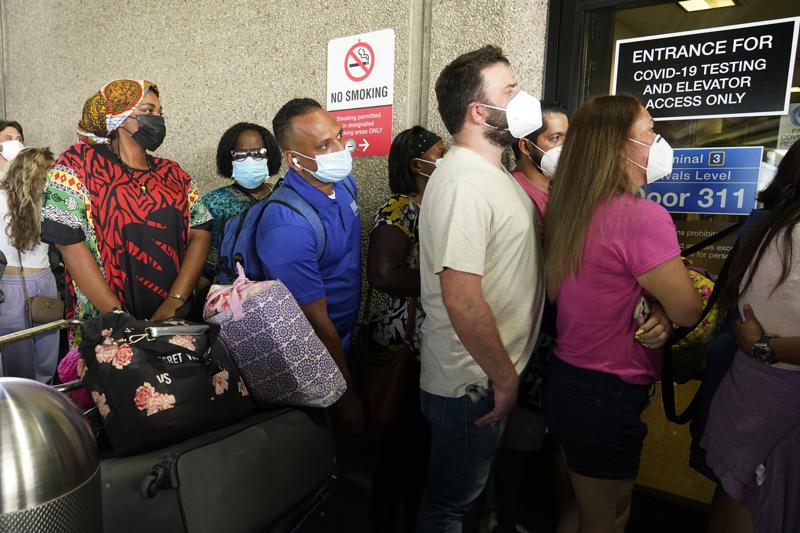Food Inflation
The Indian economy faces a multifaceted challenge as food prices continue to rise, exerting significant pressure on households and policymakers alike.
The US seems to be returning to a milestone last seen during the winter surge in yet another bleak reminder of how quickly the delta variant has spread through the country.

Passengers wait in a long line to get a COVID-19 test to travel overseas at Fort Lauderdale-Hollywood International Airport, Friday, Aug. 6, 2021, in Fort Lauderdale, Florida.
The U.S. is now averaging 100,000 new COVID-19 infections a day, returning to a milestone last seen during the winter surge in yet another bleak reminder of how quickly the delta variant has spread through the country. The U.S. was averaging about 11,000 cases a day in late June. Now the number is 107,143.
It took the U.S. about nine months to cross the 100,000 average case number in November before peaking at about 250,000 in early January. Cases bottomed out in June but took about six weeks to go back above 100,000, despite a vaccine that has been given to more than 70% of the adult population.
Advertisement
The seven-day average for daily new deaths also increased, according to data from Johns Hopkins University. It rose over the past two weeks from about 270 deaths per day to nearly 500 a day as of Friday.
Advertisement
The virus is spreading quickly through unvaccinated populations, especially in the south, where hospitals have been overrun with patients. Health officials are fearful that cases will continue to soar if more Americans don’t embrace the vaccine.
“Our models show that if we don’t (vaccinate people), we could be up to several hundred thousand cases a day, similar to our surge in early January,” Centers for Disease Control and Prevention director Rochelle Walensky said on CNN this week.
The number of Americans hospitalized with the virus has also skyrocketed and it has gotten so bad that many hospitals are scrambling to find beds for patients in far-off locations.
Houston officials say the latest wave of COVID-19 cases is pushing the local health care system to nearly “a breaking point” resulting in some patients having to be transferred out of the city to get medical care, including one who had to be taken to North Dakota.
Dr. David Persse, who is health authority for the Houston Health Department and EMS medical director, said some ambulances were waiting hours to offload patients at Houston area hospitals because no beds were available. Persse said he feared this would lead to prolonged response times to 911 medical calls.
(With AP inputs)
Advertisement